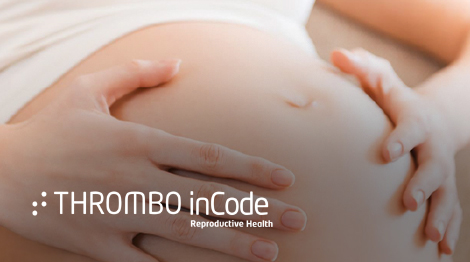Pre-eclampsia 1st Trimester
First-trimester pregnancy screening
Why undergoing this examination?
Pre-eclampsia is a relatively common complication of pregnancy. Most women affected by this disorder do not exhibit severe symptoms, but those who go on to develop eclampsia can be affected, both the mother and the fetus. Consequences in severe cases can range from placental detachment, premature birth, organ failure, seizures, etc. Pre-eclampsia can develop in the early stages of pregnancy (early pre-eclampsia), requiring induction of labor before the 34th week of gestation, or at the end of pregnancy (late pre-eclampsia). Current screening for pre-eclampsia includes ultrasound parameters and the early detection of symptoms (from the 25th week or 34th week, more common). However, if detected in the first trimester of pregnancy, it allows appropriate monitoring of the pregnant woman and the fetus.
What is this exam?
The Pre-Eclampsia Test – Screening is an examination that assesses the risk of developing pre-eclampsia between the 11th and 13th weeks of gestation. The risk analysis is calculated based on an algorithm that combines PlGF (placental growth factor) levels, PAPP-A (pregnancy-associated plasma protein-A) parameters, along with blood pressure and ultrasound data.
For whom is it indicated?
- Pregnant women between weeks 11 and 13.6 of gestation, especially with any of the following risk factors:
- First pregnancy or first pregnancy with a new partner;
- Previous pregnancy with pre-eclampsia or if the mother had pre-eclampsia;
- Type I diabetes;
- Body mass index over 35;
- Age over 40 years;
- Multiple pregnancies;
- High blood pressure, kidney problems, and/or diabetes;
- In vitro fertilization pregnancy (FIV).
Technology
Chemiluminescence.
Pre-eclampsia 1st Trimester
First-trimester pregnancy screening
Pre-eclampsia is a relatively common complication of pregnancy. Most women affected by this disorder do not exhibit severe symptoms, but those who go on to develop eclampsia can be affected, both the mother and the fetus. Consequences in severe cases can range from placental detachment, premature birth, organ failure, seizures, etc. Pre-eclampsia can develop in the early stages of pregnancy (early pre-eclampsia), requiring induction of labor before the 34th week of gestation, or at the end of pregnancy (late pre-eclampsia). Current screening for pre-eclampsia includes ultrasound parameters and the early detection of symptoms (from the 25th week or 34th week, more common). However, if detected in the first trimester of pregnancy, it allows appropriate monitoring of the pregnant woman and the fetus.
The Pre-Eclampsia Test – Screening is an examination that assesses the risk of developing pre-eclampsia between the 11th and 13th weeks of gestation. The risk analysis is calculated based on an algorithm that combines PlGF (placental growth factor) levels, PAPP-A (pregnancy-associated plasma protein-A) parameters, along with blood pressure and ultrasound data.
- Pregnant women between weeks 11 and 13.6 of gestation, especially with any of the following risk factors:
- First pregnancy or first pregnancy with a new partner;
- Previous pregnancy with pre-eclampsia or if the mother had pre-eclampsia;
- Type I diabetes;
- Body mass index over 35;
- Age over 40 years;
- Multiple pregnancies;
- High blood pressure, kidney problems, and/or diabetes;
- In vitro fertilization pregnancy (FIV).
Chemiluminescence.
Advantages
SYNLAB GROUP
Guaranteed by the experience of the absolute European leader in laboratory diagnostics.
COMPLETE
Report with objective results and detailed interpretation.
Extra Information
DOCUMENTATION – Available on the SYNLAB Direct for clients
- Informed Consent;
- Clinical Questionnaire;
- Medical prescription.
PREPARATION
- Fasting is not necessary for the test;
- It is recommended to perform the test between the 11th and 13th gestational weeks.

Delivery Time
3 business days

Sample Type
3mL serum












